Rabbi Frederick Eisenberg
Making Life "as good for people as I could'
for 50 years Frederick Eisenberg was born to Dr. Moses Joel Eisenberg and his wife Violet on January 26, 1931 in Boston, Massachusetts. Growing up he was always surrounded by friends of his parents who were scientists as well as philosophers and Rabbi Fred was fascinated listening to them talk. With an eye on going into electronics, Rabbi Fred took Science classes at MIT. As things progressed, he realized that this may not be the correct career choice for him. He found himself drawn away from the field when he realized that he was more concerned, and preferred to spend his time with, people rather than things. He decided he wanted to become a Rabbi. When his mother realized he was serious, she called a family council to make sure he understood what he was doing. His uncles were prestigious attorneys. One was the counsel and advisor for Dwight Eisenhower. They expected him to go to Harvard Law. Rabbi Fred was not to be dissuaded. He left MIT and enrolled at Clark University where he earned his bachelor's degree and then took religious studies at Hebrew Union College in Cincinnati. 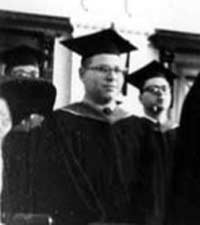
Rabbi Fred Eisenberg Ordination in 1957
from Hebrew Union College
The Rabbi was ordained in 1957. That same year he married his one true love, Helen (nee Finer). He also joined the Air Force that year "Because I owed that to my country". He was first shipped off to Texas and was then scheduled to go to Tokyo. The Air Force was not able to send Helen with him, and he would not leave his pregnant wife behind. There was an opening in Biloxi, Mississippi at Keesler Air Force Base. Keesler was a training base with over 30,000 people. A school, especially one with such a large population, was the perfect place for the Rabbi to serve. He became the chaplain at the Base. There were some surprises in store for Rabbi Fred. "I got there and realized I was in the Deep South - the real Deep South. At that time, if you were driving in a car with a black man, you had to sit in back or he had to sit in back. I disregarded that. That was the time when they were integrating the beaches in Biloxi. I was involved with the integration of the beaches. I went and marched." 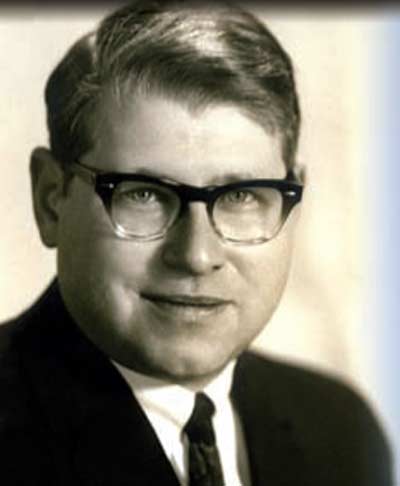
Young Fred Eisenberg
He took his efforts to integrate Biloxi even a step further when he held an integrated Seder dinner. "There were some black Jews from Chicago and I invited my commander who was also black and it was a very interesting event. Didn't bother me - certainly bothered some other people. Here I was a northern white liberal in Biloxi Mississippi causing them a lot of aggravation. Of course those were the days when they hung people."He says it is impossible for anyone who did not live in the Deep South in the fifties during the civil rights movement to really understand what took place. He says it is hard to understand and harder yet to explain. One thing he says he can tell us is "It was scary!" After his Air Force time was up he moved to Chicago were he was an associate rabbi for four years. The next seven years were spent in Grand Rapids, serving the Jewish congregation there. 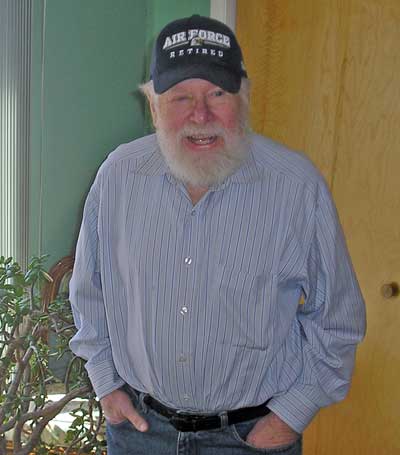
Rabbi Frederick Eisenberg wearing his
Air Force - Retired cap
He wanted to come to Cleveland and applied at Case for a position at Hillel, a Jewish college student organization that sees to the needs of the students.When he returned home after submitting his application, he received a phone call from Rabbi Arthur Lelyveld of Fairmount Temple. He suggested that Rabbi Fred not go to Hillel, but instead come and work with him. In 1972, that is exactly what happened. Rabbi Fred, Helen and their children Matthew, Rachel and Elizabeth moved to Cleveland. 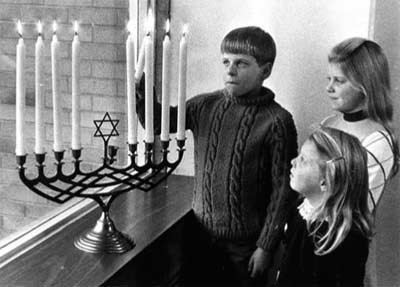
Matthew, Rachel and Elizabeth Eisenberg in 1968
Most of his work in Cleveland was focused on youth groups in both the Jewish community as well as the surrounding community. He became Chairman of the Bureau of Jewish Educator's Lillian and Leonard Rattner Media Center. He also joined the Board of the Media Committee of the Central Conference of American Rabbis. He worked in radio and television with the Gabriel and Emmy Award nominations. He sat on the board of directors of the TV and film institute formed to create and promote Jewish programming. Soon after, a group of people approached the Rabbi and expressed their admiration of his style and approach. With a congregation of about fifty people, the Rabbi started his own temple, Temple Israel. How does one start their own Temple? The Rabbi says "With guts!" At the time, his son had become a Rabbi and was serving in Houston, Texas. He came to Cleveland with a Congregation and soon the two temples merged. Rabbi Fred is humble about his time in the rabbinate. "I taught. I preached. I visited. I counseled. What any priest or minister does, except these are Jews. Jewish, Protestant, Catholic - people are people. They have needs. They have wants. They have desires. They have intellects. And so you try to serve them." 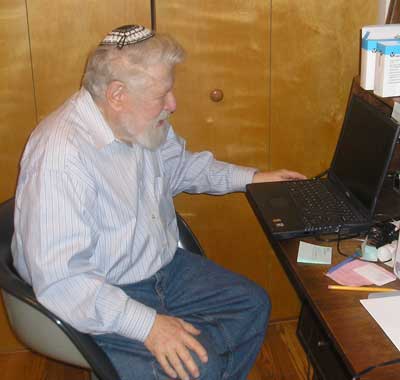
Rabbi Frederick Eisenberg at work
The temple he started is Reform which Rabbi Fred describes as meaning "you are looking to the future and what has to be done in the world and society. You are very tuned in to the society in which you live. Reform also means Liberal."2008 marked his 50th year as a Rabbi and his 50th wedding anniversary - two milestones only an elite few can claim. 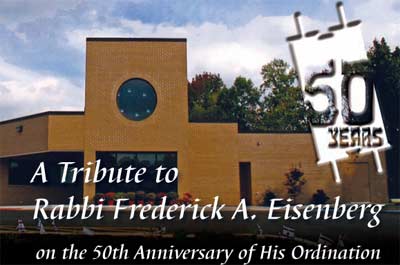
Cleveland Jewish News tribute to Rabbi Fred Eisenberg
2008 also marks the 60th anniversary of the forming of The State of Israel. Rabbi Fred has been to Israel many times and has often taken groups with him. The draw the Jews have to Israel is legendary and the obvious question is "why?" As Rabbi Fred says, his family has been in the United States since the 1800's and he has relatives in South Carolina, New York and Pennsylvania. Yet there is a call to "home" to the family roots. He thinks it is akin to the Irish going back to "the old sod" even those whose families have been here for three or four generations. 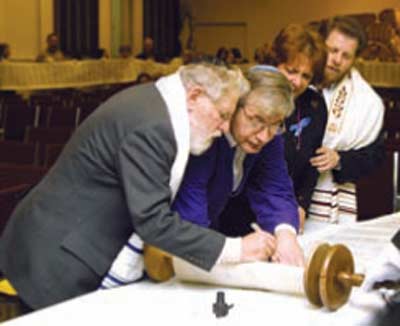
Rabbi Fred Eisenberg inscribes a letter
in Temple Israel Ner Tamid's new torah
He says, "Israel has been around since the beginning of time. State or no state Israel is there. You go there because you want to be connected to your past. My past is America because I was born here and raised here and my grandparents were born here. My mother's family were all apothecaries in Boston. But at the same time, they were Jewish and Jews like to feel that there is a place on earth from which we came. You have to know from whence you come. And all Americans come from someplace else. Unless you happen to be an Indian and even they immigrated here." Rabbi Fred is quite a Jazz aficionado. He studied clarinet in High School and college and played with some exceptional musicians in his day. Health issues prevent him from playing now. "It's hard to be a clarinet player if you can't run a riff." 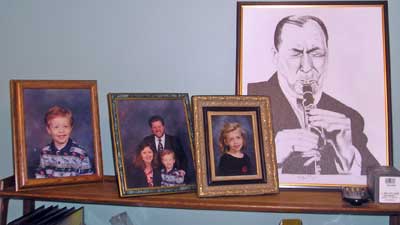
Family photos share the stage with Jazz memorabilia in the Rabbi's home
His father played bass in a jazz band to get himself through Harvard. "Nobody in those days had any money. And so he met all these musicians who were his friends all through his life and they were good people."He has very happy memories of his childhood. "I had the best of all possible childhoods. Youth-hoods. College-hoods. Then I met the best of all possible women, Helen, my wife for over 50 years. She puts up with me." 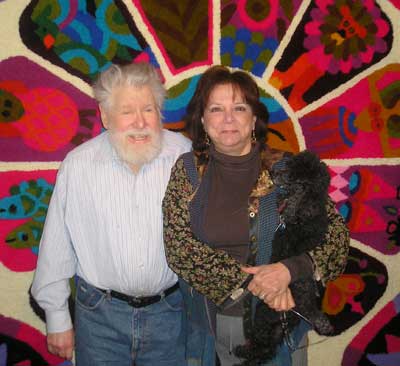
Rabbi Frederick Eisenberg with his wife Helen
and toy poodle Dolly (2008)
It is not easy to aggravate Rabbi Fred but hurting another person is the surest way to do so. On the other hand, it is easy to make him happy. "The beauty of the world around me. When you look outside at a day like this the sun is shining the birds are chirping away. God gave us a beautiful world. Now the question is how do we make it better."The Rabbi has an answer to his own question, and he thinks it is a simple one. "The answer is 'Love one another, care for one another.'" Rabbi Fred recalls the day he retired and turned the temple over to his son. It was a very proud moment for him, as it would be for any father. "The day he came and took over, I was sitting on the pulpit and he preached and accepted the call to come to Cleveland. At the end of the service as he was leaving the temple, I handed him the keys to the temple. I said, 'you are the Rabbi. I'm taking the boat out fishing. Call me if you need me'." Rabbi Fred has three children and four grandchildren. Family is very important to him and sees the parental role as paramount in the formation of a child's standards and ethics, but sees how different things are today versus when he was a child. 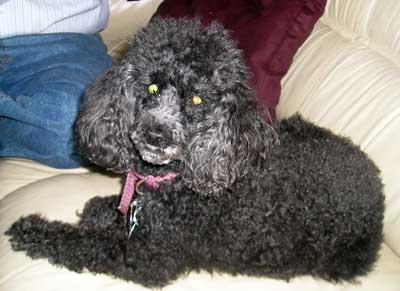
Rabbi Fred and Helen Eisenberg's Toy Poodle Dolly
"When I was growing up I was very lucky. My father worked as an oral surgeon downstairs and we lived upstairs." That was the way it was in the fifties. "We ate together we had breakfast together and lunch together and supper together and the family met together often." He laments that it is very different now, with no time for our families. And yet he is hopeful "The future is always positive. We have been through a lot in our world. It is worth it to hold hope for the future." 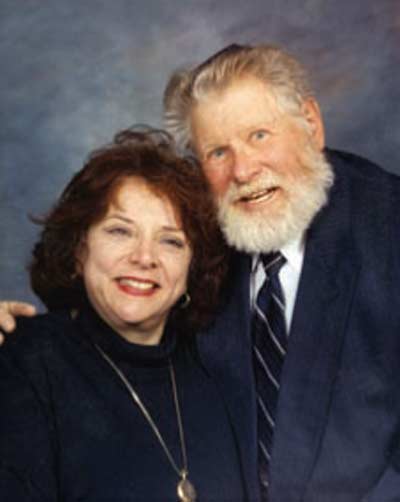
Helen and Fred Eisenberg
Although he is not a native Clevelander he says "I love Cleveland." He chose not to go back to Boston because "That was my family's past. So I made my own future. Now my son has the congregation and the grandchildren are Clevelanders. This is a wonderful town. With good people. And interesting museums and libraries. Case is as good as MIT was. The Symphony here is better than even the Boston Symphony, which I loved."Although some people think science and faith cannot co-exist, he finds no conflict between his training at MIT and his faith. "How do I respond to people who do? That is their problem. Science is science and faith is faith - don't try to make them the same. 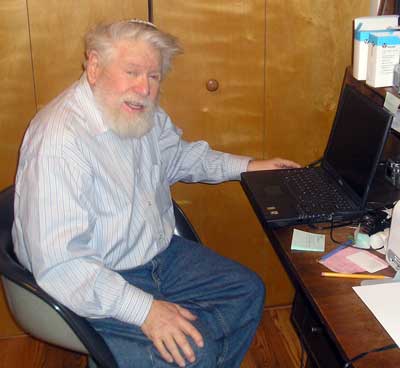
He is a scholar, a teacher, a man of God and a family man. Yet he humbly describes himself as "...a retired rabbi who has survived long enough to be interesting. "The object was to make life as good for other people as I could and since I was Jewish I decided to be a Rabbi." He hopes that people will think of him as the one they could talk to, who helped them find meaning in life and think of him as a decent human being. His request to be thought of as simply "decent" speaks volumes about this man. People who know him trust him. People who do not know him, find they would like too. He has taken the gifts God gave him and shared them with people in all walks of life. He does not think of people as black or white or even as Christian or Jew. He thinks of people as children of God and his own brothers and sisters and offers a helping hand. 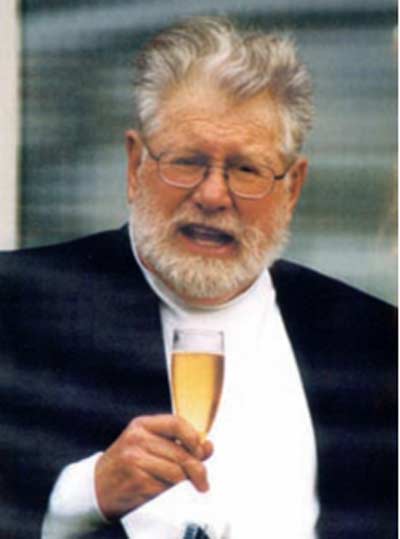
Mazel Tov!
It will not be hard for people to honor his wishes and think of him as a decent man. What will be hard, however, will be to try to constrain their thoughts of this Rabbi to such a simple portrayal -he far surpassed what we think of merely as "decent."
Listen to a brief (35 second) message (in Hebrew and English) from Rabbi Frederick Eisenberg.
Profiled by Debbie Hanson (4/08)

Updates:
Rabbis Frederick and Matthew Eisenberg assisted in the blessing (with Harlan Diamond, Rabbi Roberts and Leon Bibb) at Philanthropia 2010. 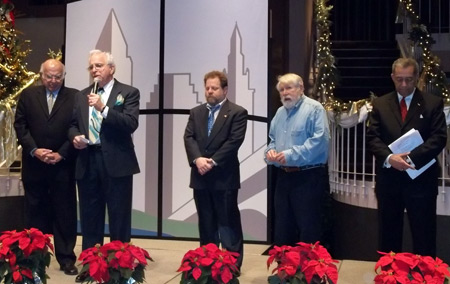
Top of Page
Maltz Museum Exhibit - Israel at 60
Back to Jews in Cleveland
Back to Profiles of Cleveland Seniors
| 
